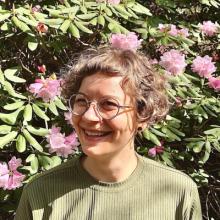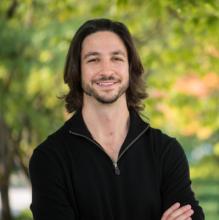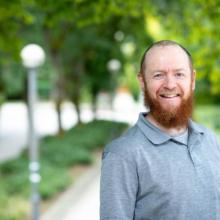Being a public scholar means embracing a commitment to research that transcends academic boundaries and contributes to societal change. It involves actively sharing knowledge, fostering collaboration and ensuring that our research work has tangible impacts on communities and the public.
Research Description
My research focuses on improving transparency and accountability in the mining industry using natural language processing (NLP). By applying NLP techniques to analyze unstructured data, such as sustainability reports from mining companies, I aim to extract, summarize and present critical information on topics like Indigenous engagement and community and environmental impacts. This project seeks to overcome information overload and selective disclosure challenges in the sector, ultimately empowering stakeholders — including communities, policymakers and industry actors — with accessible insights for better governance and decision-making. My work bridges data science, sustainability and resource governance to promote responsible and transparent mining practices globally.
What does being a Public Scholar mean to you?
I am ecstatic to have received the Public Scholar Award and to join a community of exceptional scholars dedicated to creating meaningful impact. For me, being a public scholar means embracing my commitment to driving change beyond academic boundaries. I am determined to actively share knowledge, foster collaboration, and ensure that my work delivers tangible benefits to society.
As someone from Mongolia, I have witnessed firsthand the profound effects of resource extraction on communities and society. This experience has deeply shaped my academic focus and professional endeavors, driving me to explore the impacts and benefits of mining. As a member of this global community, I strive to ensure that my work in sustainability and mining transparency contributes meaningfully to both local and international stakeholders, advancing responsible and equitable practices.
In what ways do you think the PhD experience can be re-imagined with the Public Scholars Initiative?
My background in mining engineering and my current work in natural language processing (NLP) allow me to bridge the gap between technical and social disciplines, working across sectors to make a tangible impact. The Public Scholar Initiative can further strengthen and help me demonstrate how my research addresses relevant societal needs in improving mining governance.
How do you envision connecting your PhD work with broader career possibilities?
My PhD work bridges the fields of natural resource governance and emerging technologies, like natural language processing (NLP). This unique blend opens avenues for future roles in policy-making, sustainability consulting and academia. With firsthand experience of the challenges faced by resource-rich countries, I am driven to pursue roles where I can influence both public and private sectors, driving policy reform and contributing to a more transparent and responsible extractive industry. I also see opportunities to collaborate with international organizations, ensuring that technology is harnessed to serve communities and improve governance globally.
How does your research engage with the larger community and social partners?
My research on mining transparency is deeply connected to academic and non-academic communities. Using natural language processing (NLP) to analyze mining reports, I aim to provide stakeholders, including local communities and Indigenous groups, with accessible and actionable information. I understand how vital it is for communities affected by resource extraction to have access to clear, accurate data. I collaborate with industry experts, sustainability practitioners and policy-makers to ensure my findings can directly inform governance practices and community engagement efforts.
Why did you decide to pursue a graduate degree?
I pursued a graduate degree to deepen my understanding of resource governance and contribute to solutions that promote sustainable practices. Having witnessed the complexities of resource extraction, I wanted to combine my background in linguistics, and mining with advanced research methods to address pressing challenges intersecting the sustainable development and resource governance. During my master’s program, I conducted research examining the multi-stakeholder governance approach using the Extractive Industries Transparency Initiative as a case study to assess its effectiveness in deterring the resource curse. Building on this foundation, my PhD research reimagines transparency theory in the mining industry through the lens of artificial intelligence. I want to contribute to meaningful change by promoting responsible and accountable mining practices that contribute to sustainable development. This is what motivated me to pursue a PhD at the Institute of Resources, Environment and Sustainability.
Why did you choose to come to British Columbia and study at UBC?
I am honored and grateful to be a part of the UBC community. The Institute of Resources, Environment and Sustainability has provided an ideal setting to explore critical issues in resource governance. I am thankful for my supervisor, Dr. Nadja Kunz, and for many outstanding professors and peers who have guided and inspired me throughout my academic journey. UBC ensures that my research has meaningful, real-world applications in Canada and beyond by empowering the researchers like me through programs and initiatives like the Public Scholar Initative.




